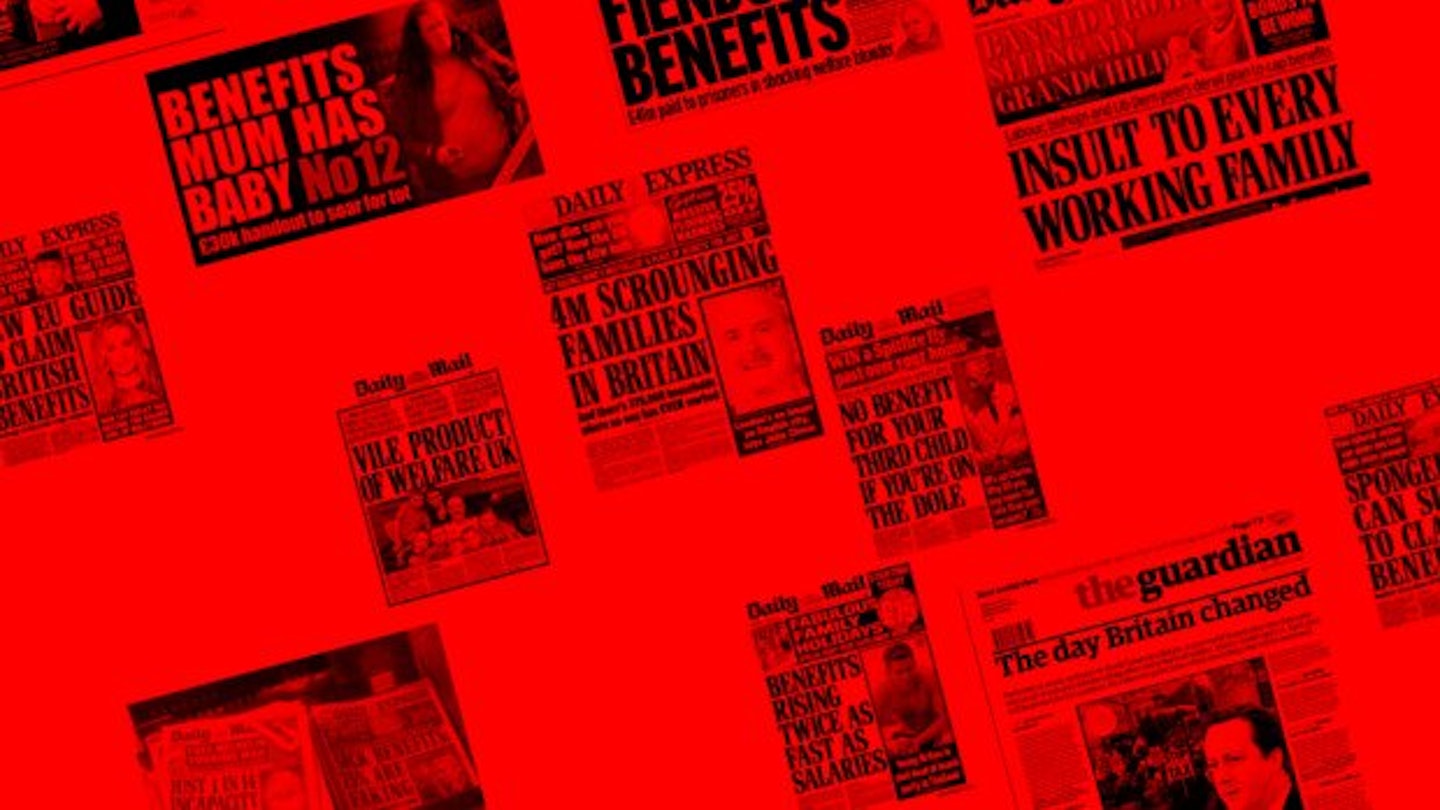Since Channel 4’s debate-bait show Benefits Street started last month, it’s been one of the most consistently talked about shows on TV. Everyone’s watching it, everyone’s got an opinion on it, and for what it’s worth, here’s mine: Benefits Street is shallow, voyeuristic TV that tells around 5% of the real story of a life on benefits. And I know that because I grew up on benefits.
What happened to me isn’t unusual. When my deadbeat dad walked out on me and my two siblings to live with another woman and her kids, he left my mum with three kids under 12. That would have been hard enough for anyone to cope with but my mum had an alcohol problem and some pretty serious mental health issues to boot so she wasn’t exactly up to the job. In fact, in the 19 years I knew her she only managed to hold down two paying jobs, neither for a very long time. As a result, everything – from my school lunches to our monthly rent – came from the state.
I won’t pretend that my childhood was anything like life on James Turner Street. We were lucky enough to be living in the private rented residence of a wealthy bloke when my dad left. The landowner didn’t massively care that the government was paying the rent on his undesirable cottage so we were allowed to stay.
That meant there wasn’t a prison at the end of the road or a heroin dealer round the corner, but I still had to watch my mum make a choice between topping up the electricity meter and buying new winter coats. We still had to scrape the ice off the inside of the windows from December to February because we could only afford to heat the living room. And we still had to beg to borrow some coal from our neighbour when the coal man got a bit pissed off that we hadn’t paid for months and refused to give us any more. (Incidentally, that neighbour also lived on benefits but she still delivered. It is only in that sense of solidarity and community that I see my childhood reflected in Benefits Street).
The mundane truth about my life on benefits, and the majority of lives on benefits, is that poverty sucks. It’s a tiring, difficult and decidedly unglamorous way to live and it’s not a choice that people make because of laziness. In fact, a clear fifth of people claiming benefits are actually working. That’s not a made-up statistic either.
It took me a long time to admit that I spent my childhood living in constant fear and riddled by shame. For two years before sixth form, I didn’t eat lunch because I was too afraid to get to the till and say, ‘I’m on the free lunch list.’ I don’t know where that shame comes from, but I know what doesn’t help: the petty, casual judgement by people who should know better but don’t.
Thanks guys, great to know you think I shouldn’t have been born because my mum didn’t stand up to your obviously ace template of who should be allowed to have kids, yeah?
Take for example the outpouring on Twitter during the first episode of Benefits Street, saying that alcoholics and mentally ill people who abused and neglected their children – just like my mum – should be forcibly sterilised. Thanks guys, great to know you think I shouldn’t have been born because my mum didn’t stand up to your obviously ace template of who should be allowed to have kids, yeah? Did our poverty cause her alcoholism? No. Did her alcoholism cause our poverty? No. But both fed into each other to create a situation that was wholly awful for her and for me and my siblings.
The worst thing about poverty, about being born into a life where you’re already on the back foot, is that you’re starting from an already crappy position and there’s every chance you’re going to end up trapped in a self-perpetuating cycle of abuse and disenfranchisement. Benefits Street had every opportunity to really take a look at this, but failed every time.
Take their treatment of one of the show’s central characters, Fungi. Within a few episodes we learn that Fungi has serious addiction issues with drugs and alcohol, has a past littered with violent crime and, most disturbingly, was abused as a child. Instead of looking at how the abuse Fungi has suffered (from others and from himself) has become a cycle of oppression, the narrator intones that it is repeated spells in prison that have stood between Fungi and a nice normal nine-to-five. It’s the same story with Mark and Becky, who both left school at 16 and have two small children. Instead of looking at how their lack of further education and Becky’s struggles with drug addiction have contributed to a life where they rely on a foodbank to eat, the show invites the viewer into their barely-furnished home to judge their parenting skills.
Deprivation comes in many forms, and it’s unfair of Benefits Street to so selectively have chosen a headline-grabbing few to tell ‘the truth about a life on benefits’. My childhood wasn’t like life on James Turner Street, but what we’re seeing on Benefits Street isn’t like life on James Turner Street either. The real story of a life on benefits is (perhaps ironically) incredibly rich, and is yet to be told.
Follow Becca Day-Preston on Twitter @Becca_DP
This article originally appeared on The Debrief.
